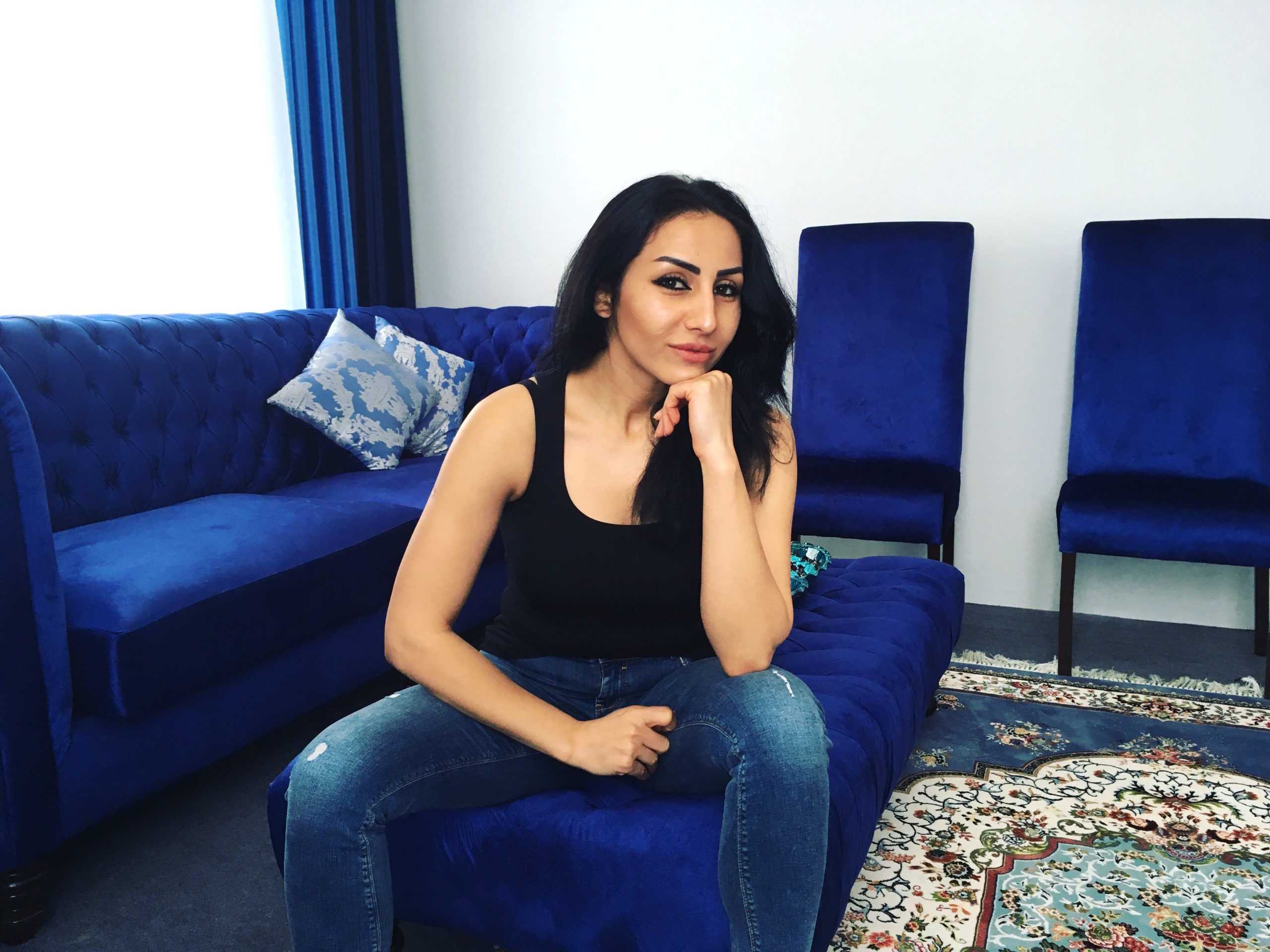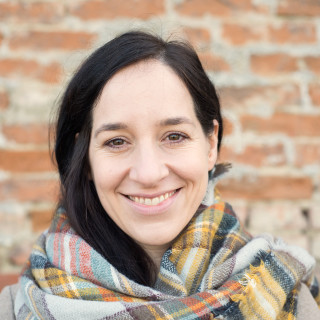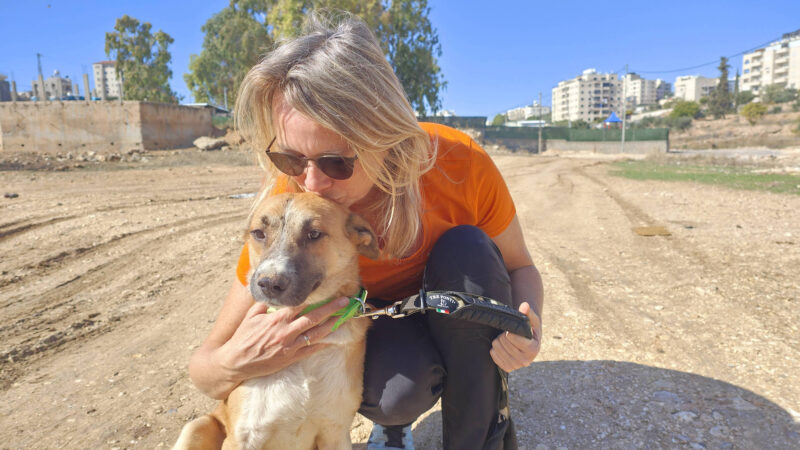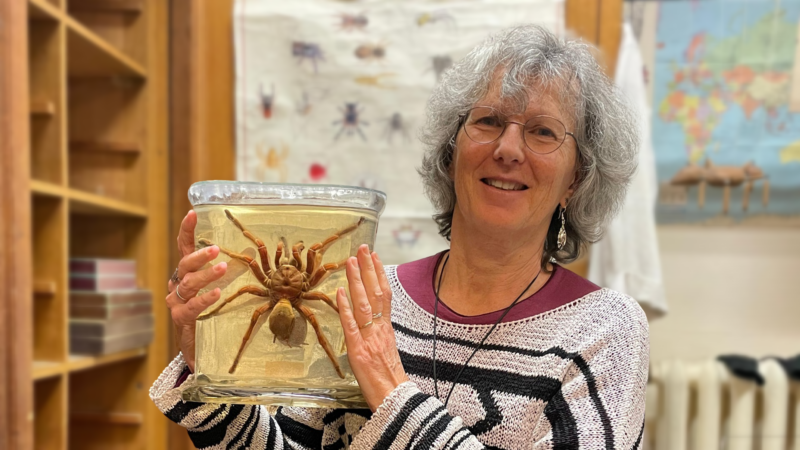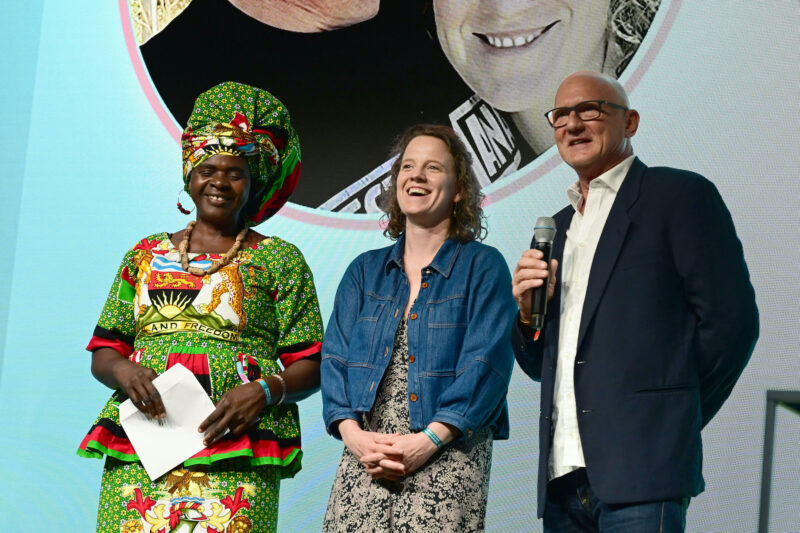Bahar Sohaili was the most courageous women’s rights activist in Afghanistan. After massive threats from conservatives, she had to give up her job. Out of consideration for her family, she no longer speaks out as vocal as before.
By Veronika Eschbacher, Kabul
Bahar Sohaili carefully pours herself some tea. She slowly stirs in some honey with a small spoon before gently placing it on the saucer. From time to time, children’s laughter and birdsong drift into her flat in the north of the Afghan capital Kabul from the street, interspersed with occasional noises from the building site opposite her block of flats. But for the most part it is quiet. She has to laugh at the silence for a moment: “It’s somehow fitting. I’m no longer a loud girl either.”
The 32-year-old Afghan women’s rights activist has long been the loudest woman in the Hindu Kush. She railed on television about the injustices suffered by women in her home country. In guest articles in local newspapers, she denounced the fact that the concept of honour in the country turned women into prison inmates; on social media, she wrote about taboo subjects such as menstruation and called for women in the civil service to be able to choose whether or not to wear headscarves. With statements such as “I am not a robber and hair is not a crime”, she criticised the traditional image of women in Islam.
Undaunted in her demeanour and convinced that she would never fall, she resembled a tightrope walker without a net. Observers in the arch-conservative country were terrified just watching her, some even thought she was on a direct path to martyrdom. Television stations refrained from repeating programmes with her, editors asked her to tone down her phrasings so as not to put herself in danger.
Sohaili’s anger about the conditions for and the ongoing violence against women in her country was met with the same energy by the conservatives. They launched campaigns – first against her as a person, to brand her as an opponent of Islam so that she would no longer be perceived as a fighter for women’s rights. A little later, they targeted Sohaili’s employer – the Afghan airline Safi Airways – and demanded that they boycott her until they parted ways with her rebellious flight attendant. Before she could be fired, Sohaili herself pulled the plug and left the company.
Hate and threatening letters
Bahar Sohaili remembers the turbulent time two years ago as she if it was yesterday. Apart from the daily threatening phone calls and threatening letters, her friends dropped her one by one. “I just saw that people hated me for what I was expressing,” she says, sipping her hot tea. All the issues she had raised, indeed women’s rights in general, were very new to her country, she says, almost apologising for her opponents.
Other activists had always warned her to slow down, take small steps and be careful. Sohaili still doesn’t understand this. “Why should we be slow? We’re already too late everywhere,” she says, shaking her head vigorously. In the 21st century, women in Afghanistan are still basically fighting not to die: “We’re practically not even fighting for other things like fundamental rights.”
However, the strong headwinds she was facing forced Sohaili to adapt her activism. “I can’t live here if I’m like I used to be,” she explains contritely. Even if she could deal with the attacks, she had to protect her family, who could easily be targeted by her actions. She has also decided not to touch the subject of Islam anymore. “Because when you attack our religion directly, you hurt a lot of emotions.” Not all of her readers are extremists, but they are Muslims, “and when you directly denounce Islam, they get hurt“.
Today, Sohaili writes in social media and daily newspapers about topics such as the right to one’s own body or, together with other activists, initiated the successful “Where is my name” campaign, which was intended to question why the names of women in Afghanistan are neither found on the birth certificates of their children nor on their own gravestones. Usually, the woman is not called by her husband’s name, but as “mother of my children” or by others as “daughter of XY”. The wife’s name is considered part of the husband’s honour and should be protected. The campaign even led to senior politicians posting the names of their wives – along with pictures of them – on social media.
Women’s rights movement grows
But Bahar Sohaili also remembers the day that turned her into an activist. She still shudders today when she thinks back to that mild spring morning three years ago. She had never seen a corpse like that before. “She was incredibly battered, totally charred, her left eye was open,” she says. But she couldn’t help but look. Sohaili wanted to see the remains of Farkhunda – the 22-year-old woman who had been lynched in broad daylight in Kabul by a mob of 400 men. It was said that she had burnt the Koran; wrongly, as it later turned out.
The historic day on which women carried a coffin to the grave for the first time in Afghanistan’s history was also a turning point for Sohaili. Not only because the coffin cut deep into her left shoulder on the long journey across the cemetery. Violence against women is commonplace in Afghanistan, says Sohaili. And yet this murder was different. “Because it wasn’t religious fanatics who killed her in agonising fashion, but ordinary people on the street, young men dressed in modern clothes, while the police stood idly by.”
Sohaili also wants to use this memory to continue her work as an activist for women’s rights. She is not alone in this desire. Overall, the women’s rights movement in Afghanistan has continued to grow in recent years, she notes. There are more female activists today than ever before. However, she also takes a critical view of the development: “Many of them are not true feminists.” In the past two years, the initially mostly secular activists have been joined by many religious women.
For Sohaili, however, they can only stand up for women’s rights to a certain extent – “that women are not killed or beaten“, she says, which is particularly common due to the corrupt justice system in the country and conservative police officers who do not prosecute honour killings, for example. For her, however, the compatibility of feminism and Islam is questionable. “Feminists have no problem with abortion, on the contrary, they see it as their right. But it is not accepted in Islam.” The religious activists may defend women, but they do not rebel against the prevailing laws that discriminate against women, because these are Islamic laws. “Rather, they are begging men to respect women. Feminists don’t beg, they fight or take their rights.”
She herself has opted for what she considers to be the more difficult path and will stick to it. The easier path – “most activists here take it, they stand up for women’s rights but accept the restrictions imposed on them by men and Islamic law” – is not for her. Bahar Sohaili would rather continue to stand up for all her rights, even if it means losing everything, being all alone at some point and being less active overall. “But at least this way I stay true to myself.”

